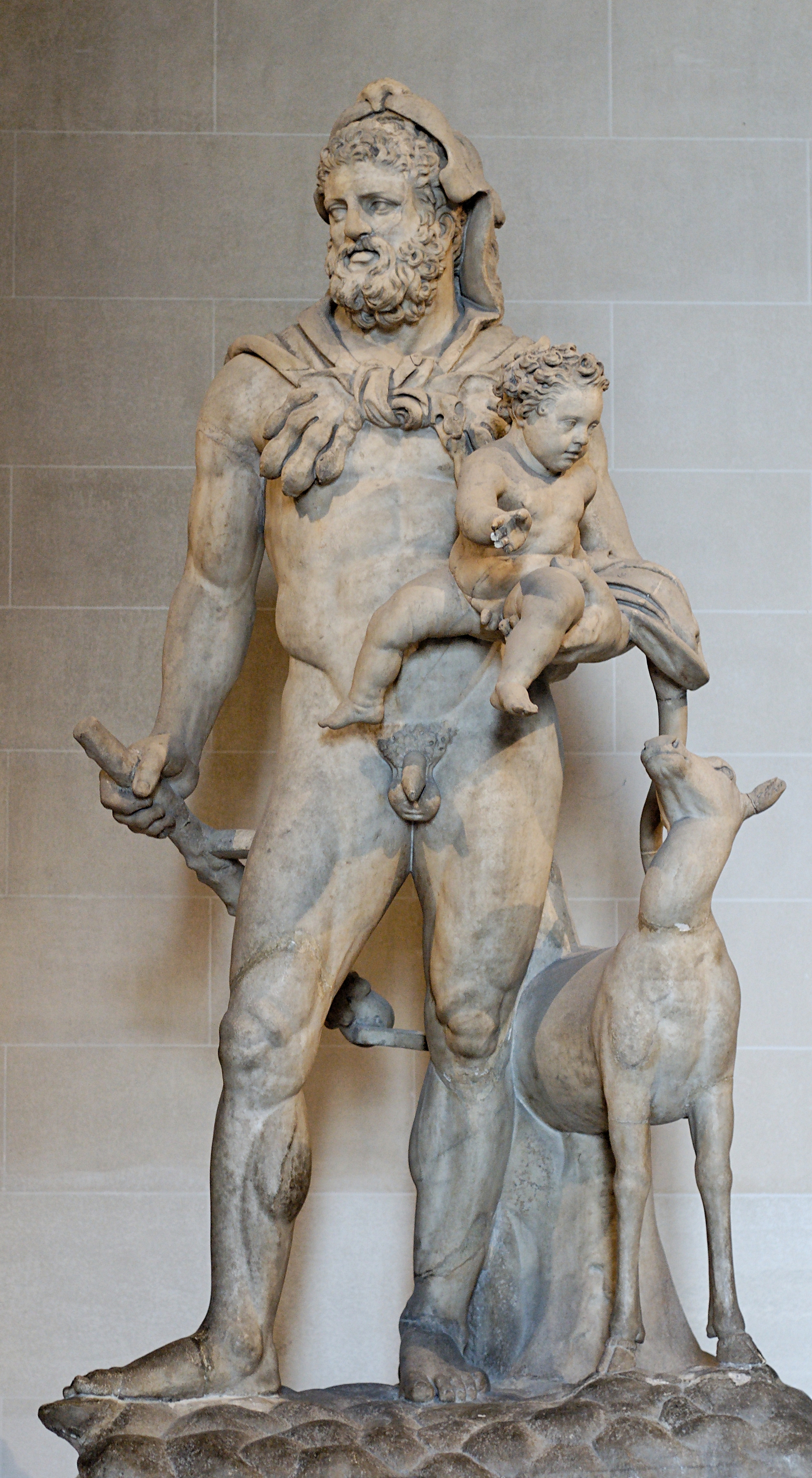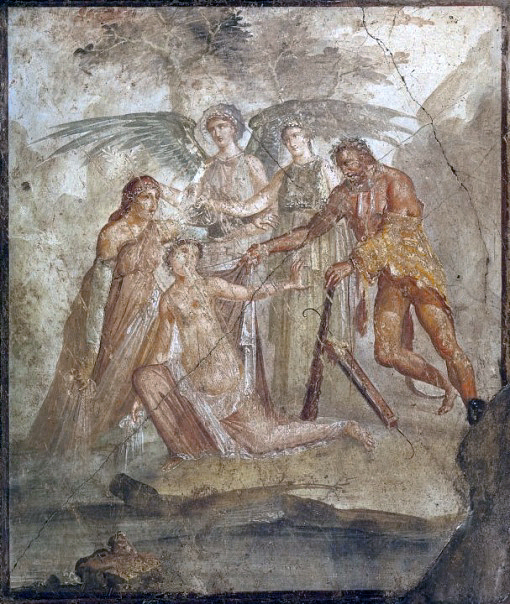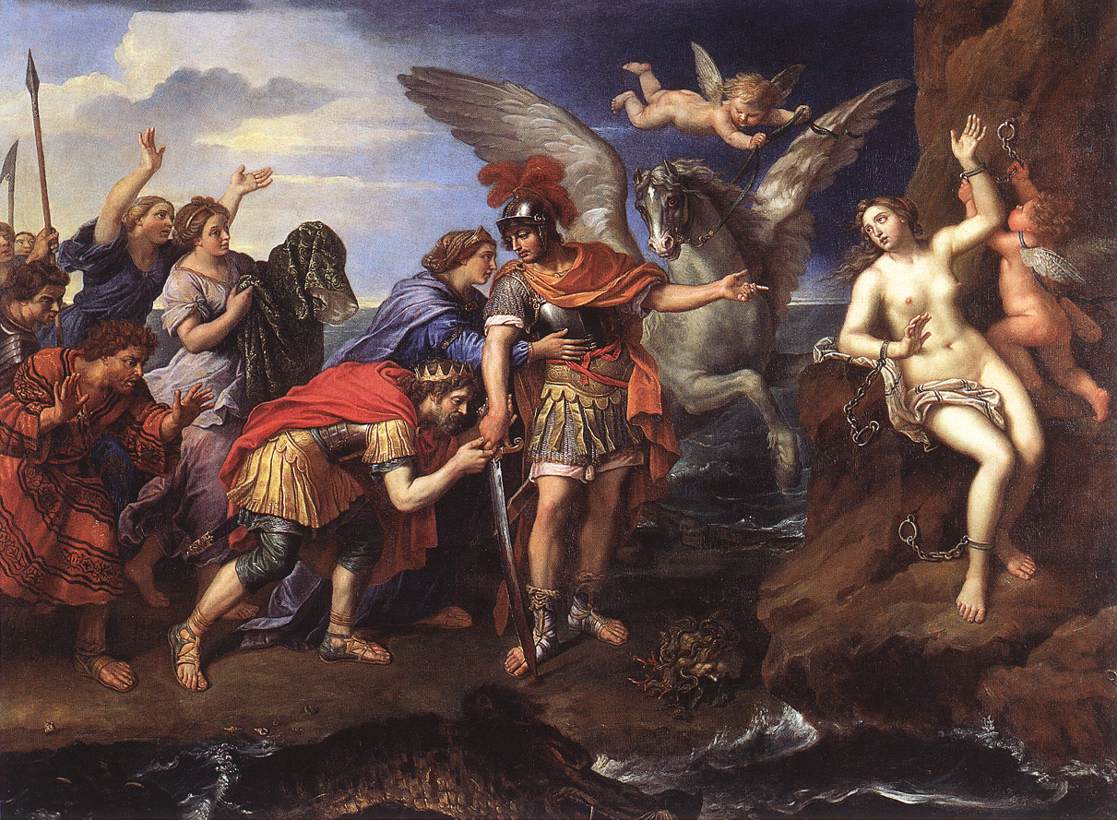|
Corythus
Corythus is the name of six mortal men in Greek mythology. *Corythus, son of Marmarus, and one of the court of Cepheus. He wounded Pelates during the battle at the wedding feast of Perseus and Andromeda. *Corythus, an Italian king and father, in some sources, of Iasion and Dardanus by Electra. *Corythus, one of the Lapiths. Only a youth, he was killed nonetheless by Rhoetus, one of the Centaurs. *Corythus, an Iberian, beloved of Heracles. Was said to have been the first to devise a helmet (Greek ''korys'', gen. ''korythos''), which took its name from him. *Corythus, one of the Doliones. He was killed by Tydeus. *Corythus, a king who raised Telephus, son of Heracles and Auge, as his own son. *Corythus, son of Paris and the nymph Oenone. After Paris abandoned Oenone, she sent the boy, now grown, to Troy, where he fell in love with Helen, and she received him warmly. Paris, discovering this, killed him, not recognizing his own son. Corythus was also said to have been, instead, t ... [...More Info...] [...Related Items...] OR: [Wikipedia] [Google] [Baidu] |
Dardanus (son Of Zeus)
In Greek mythology, Dardanus (; Ancient Greek: Δάρδανος, ''Dardanos'') was the founder of the city of Dardanus at the foot of Mount Ida in the Troad. Family Dardanus was a son of Zeus and the Pleiad Electra, daughter of Atlas but one author claims that his real father was the Corythus, an Italian king. He was the brother of Iasion and sometimes of Harmonia and Emathion. Mythology Dionysius of Halicarnassus (1.61–62) states that Dardanus' original home was in Arcadia, where Dardanus and his elder brother Iasus (elsewhere more commonly called Iasion) reigned as kings following Atlas. Dardanus married Chryse, daughter of Pallas, by whom he fathered two sons: Idaeus and Deimas. When a great flood occurred, the survivors, who were living on mountains that had now become islands, split into two groups: one group remained and took Deimas as king while the other sailed away, eventually settling in the island of Samothrace. There Iasus (Iasion) was slain by Zeus for ... [...More Info...] [...Related Items...] OR: [Wikipedia] [Google] [Baidu] |
Electra (Pleiad)
In Greek mythology, Electra (; 'amber') was one of the Pleiades, the seven daughters of Atlas and Pleione. She lived on the island of Samothrace. She had two sons, Dardanus and Iasion (or Eetion), by Zeus. Pseudo-Scymnos, ''Circuit de la terre'' 646 ff. Electra was connected with the legend of the Palladium, the sacred statue, which became the talismanic protector of Troy. Electra, along with the rest of the Pleiades, were transformed into stars by Zeus. By some accounts, she was the one star among seven of the constellation not easily seen, because, since she could not bear to look upon the destruction of Troy, she hid her eyes, or turned away; or in her grief, she abandoned her sisters and became a comet. Family The Pleiades were said to be the daughters of Atlas, who was the son of the Titan Iapetos. No early source mentions their mother, but according to some late accounts she was the Oceanid Pleione. Hyginus' ''De Astronomica'' says that Electra and her six sisters were ... [...More Info...] [...Related Items...] OR: [Wikipedia] [Google] [Baidu] |
Iasion
In Greek mythology, Iasion ( grc, Ἰασίων, Iasíōn) or Iasus ( grc, Ἴασος, Íasos), also called Eetion ( grc, Ἠετίων, Ēetíōn), was the founder of the mystic rites on the island of Samothrace. Family According to the mythographer Apollodorus, Iasion is the son of the Pleiad Electra and Zeus, and the brother of Dardanus and possibly Emathion. Both Hellanicus and Diodorus Siculus repeat this parentage, adding Harmonia as his sister. According to an Italian version of the genealogy, Iasion and Dardanus are both Electra's sons, and are both born in Italy, with Iasion fathered by Corythus and Dardanus by Zeus. In Hyginus' ''Fabulae'', Iasion is called the son of Ilithyius. With Demeter, Iasion was the father of Plutus, the god of wealth. According to Hyginus' ''De Astronomica'', Iasion was also the father of Philomelus, while, according to Diodorus Siculus, he was the father of a son named Corybas with Cybele. Mythology At the marriage of Cadmus and Har ... [...More Info...] [...Related Items...] OR: [Wikipedia] [Google] [Baidu] |
Telephus
In Greek mythology, Telephus (; grc-gre, Τήλεφος, ''Tēlephos'', "far-shining") was the son of Heracles and Auge, who was the daughter of king Aleus of Tegea. He was adopted by Teuthras, the king of Mysia, in Asia Minor, whom he succeeded as king. Telephus was wounded by Achilles when the Achaeans came to his kingdom on their way to sack Troy and bring Helen back to Sparta, and later healed by Achilles. He was the father of Eurypylus, who fought alongside the Trojans against the Greeks in the Trojan War. Telephus' story was popular in ancient Greek and Roman iconography and tragedy. Telephus' name and mythology were possibly derived from the Hittite god Telepinu. Birth to adulthood Summary Telephus' mother was Auge, the daughter of Aleus, the king of Tegea, a city in Arcadia, in the Peloponnese of mainland Greece. His father was Heracles, who had seduced or raped Auge, a priestess of Athena. When Aleus found out, he tried to dispose of mother and child, but eventuall ... [...More Info...] [...Related Items...] OR: [Wikipedia] [Google] [Baidu] |
Doliones
In Greek mythology, the Doliones (Ancient Greek: Δολίονες) or Dolionians were the people living on the coast of the Propontis (northwestern Asia Minor), visited by the Argonauts. They were ruled by Cyzicus, son of Aeneus and Aenete. Mythology After the departure of the Argonauts in Lemnos, they came to the land of the Doliones of whom Cyzicus was the king. Cyzicus welcomed the Argonauts on their journey to Colchis and received them with generous hospitality. But after their departure, a storm drove them back to the Cyzicene coast at night. With neither the Argonauts nor King Cyzicus and the Doliones recognizing one another, each mistook the other as an enemy and battle ensued (according to Apollonius of Rhodes' ''Argonautica'' and Apollodorus' ''Library'', the Doliones thought the returning Argonauts were a Pelasgian army who constantly harassed them). A fragment attributed to 4th century BCE historian Ephorus in the ''Scholia on Apollonius of Rhodes Argonautica,'' howev ... [...More Info...] [...Related Items...] OR: [Wikipedia] [Google] [Baidu] |
Heracles
Heracles ( ; grc-gre, Ἡρακλῆς, , glory/fame of Hera), born Alcaeus (, ''Alkaios'') or Alcides (, ''Alkeidēs''), was a divine hero in Greek mythology, the son of Zeus and Alcmene, and the foster son of Amphitryon.By his adoptive descent through Amphitryon, Heracles receives the epithet Alcides, as "of the line of Alcaeus", father of Amphitryon. Amphitryon's own, mortal son was Iphicles. He was a great-grandson and half-brother (as they are both sired by the god Zeus) of Perseus, and similarly a half-brother of Dionysus. He was the greatest of the Greek heroes, the ancestor of royal clans who claimed to be Heracleidae (), and a champion of the Olympian order against chthonic monsters. In Rome and the modern West, he is known as Hercules, with whom the later Roman emperors, in particular Commodus and Maximian, often identified themselves. The Romans adopted the Greek version of his life and works essentially unchanged, but added anecdotal detail of their own, so ... [...More Info...] [...Related Items...] OR: [Wikipedia] [Google] [Baidu] |
Lapiths
The Lapiths (; grc, Λαπίθαι) are a group of legendary people in Greek mythology, whose home was in Thessaly, in the valley of the Peneus and on the mountain Pelion. Mythology Origin The Lapiths were an Aeolian tribe who, like the Myrmidons, were natives of Thessaly. The genealogies make them a kindred people with the centaurs: In one version, Lapithes (Λαπίθης) and Centaurus (Κένταυρος) were said to be twin sons of the god Apollo and the nymph Stilbe, daughter of the river god Peneus. Lapithes was a valiant warrior, but Centaurus was a deformed being who later mated with mares from whom the race of half-man, half-horse centaurs came. Lapithes was the eponymous ancestor of the Lapith people, and his descendants include Lapith warriors and kings, such as Ixion, Pirithous, Caeneus, and Coronus, and the seers Ampycus and his son Mopsus. In the ''Iliad'' the Lapiths send forty crewed ships to join the Greek fleet in the Trojan War, commanded by Polypoetes ... [...More Info...] [...Related Items...] OR: [Wikipedia] [Google] [Baidu] |
Auge
In Greek mythology, Auge (; Ancient Greek: Αὐγή 'sunbeam, daylight, dawn') was the daughter of Aleus the king of Tegea in Arcadia, and the virgin priestess of Athena Alea. She was also the mother of the hero Telephus by Heracles. Auge had sex with Heracles (either willingly, or by force) and was made pregnant. When Aleus found this out, by various accounts, he ordered Auge drowned, or sold as a slave, or shut up in a wooden chest and thrown into the sea. However, in all these accounts, she and her son Telephus end up at the court of the Mysian king Teuthras, where Auge becomes the wife (or the adopted daughter) of Teuthras, and Telephus becomes Teuthras’ adopted son and heir. Family Auge was the daughter of Aleus, the grandson of Arcas, who was the son of Zeus and Callisto. Aleus was the king of Arcadia and eponym of Alea, and was said to have been the founder of the cult of Athena Alea and the builder of Temple of Athena Alea at his capital of Tegea. According to ... [...More Info...] [...Related Items...] OR: [Wikipedia] [Google] [Baidu] |
Italy
Italy ( it, Italia ), officially the Italian Republic, ) or the Republic of Italy, is a country in Southern Europe. It is located in the middle of the Mediterranean Sea, and its territory largely coincides with the homonymous geographical region. Italy is also considered part of Western Europe, and shares land borders with France, Switzerland, Austria, Slovenia and the enclaved microstates of Vatican City and San Marino. It has a territorial exclave in Switzerland, Campione. Italy covers an area of , with a population of over 60 million. It is the third-most populous member state of the European Union, the sixth-most populous country in Europe, and the tenth-largest country in the continent by land area. Italy's capital and largest city is Rome. Italy was the native place of many civilizations such as the Italic peoples and the Etruscans, while due to its central geographic location in Southern Europe and the Mediterranean, the country has also historically been home ... [...More Info...] [...Related Items...] OR: [Wikipedia] [Google] [Baidu] |
Iberia
The Iberian Peninsula (), ** * Aragonese and Occitan: ''Peninsula Iberica'' ** ** * french: Péninsule Ibérique * mwl, Península Eibérica * eu, Iberiar penintsula also known as Iberia, is a peninsula in southwestern Europe, defining the westernmost edge of Eurasia. It is principally divided between Spain and Portugal, comprising most of their territory, as well as a small area of Southern France, Andorra, and Gibraltar. With an area of approximately , and a population of roughly 53 million, it is the second largest European peninsula by area, after the Scandinavian Peninsula. Name Greek name The word ''Iberia'' is a noun adapted from the Latin word "Hiberia" originating in the Ancient Greek word Ἰβηρία ('), used by Greek geographers under the rule of the Roman Empire to refer to what is known today in English as the Iberian Peninsula. At that time, the name did not describe a single geographical entity or a distinct population; the same name was us ... [...More Info...] [...Related Items...] OR: [Wikipedia] [Google] [Baidu] |
Cepheus, King Of Aethiopia
In Greek mythology, Cepheus (; Ancient Greek: Κηφεύς ''Kepheús'') was the name of two rulers of Aethiopia, grandfather and grandson. Family Cepheus was the son of either Belus, Agenor or Phoenix. If Belus was his father, he had Achiroe, daughter of Nilus as mother, and Danaus, Aegyptus and Phineus as brothers. He was called Iasid Cepheus, pertaining to his Argive ancestry through King Iasus of Argus, father of Io. Mythology Cepheus is prominently featured in the Perseus legend as the husband of Cassiopeia and father of Princess Andromeda, and whose brother Phineus expected to marry Andromeda. Various sources described his kingdom to be "Aethiopia" or later as the city of Joppa (Jaffa) in Phoenicia, which was named after the elder Cepheus' wife, Iope, daughter of Aeolus. When Cepheus' proud wife Cassiopeia foolishly boasted that Andromeda was more beautiful than the Nereids, not only the sea-nymphs themselves but also Poseidon was angered. Thus, the sea god sent ... [...More Info...] [...Related Items...] OR: [Wikipedia] [Google] [Baidu] |
Gaius Valerius Flaccus
Gaius Valerius Flaccus (; died ) was a 1st-century Roman poet who flourished during the " Silver Age" under the Flavian dynasty, and wrote a Latin ''Argonautica'' that owes a great deal to Apollonius of Rhodes' more famous epic. Gaius Valerius Flaccus at britannica.com.Tim Stover Valerius Flaccus at oxfordbibliographies.com. Life The only widely accepted mention of Valerius Flaccus by his contemporaries is by (10.1.90), who laments th ...[...More Info...] [...Related Items...] OR: [Wikipedia] [Google] [Baidu] |




